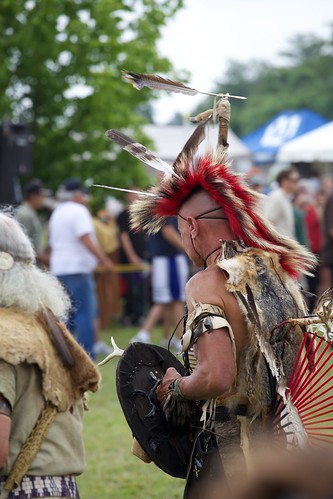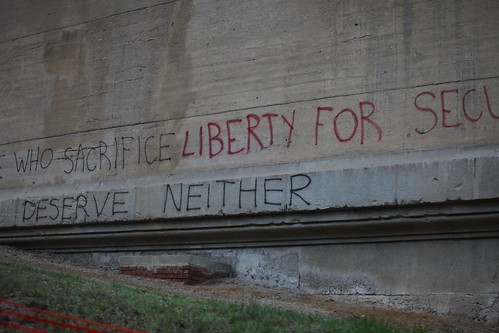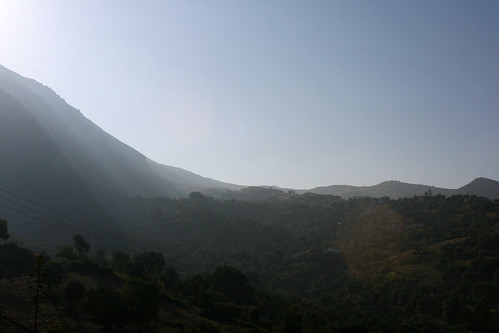See America: Welcome to America by Jerome Rothstein
Posters are part of the “By the People, For the People: Posters from the WPA, 1936-1943” collection and therefore part of the Public Domain.
Posted by Katie Mann and Corey Clyne
See America: Welcome to America by Jerome Rothstein
Posters are part of the “By the People, For the People: Posters from the WPA, 1936-1943” collection and therefore part of the Public Domain.
Posted by Katie Mann and Corey Clyne
Presidential War Powers
Introduction: The War Powers of the President of the United States is a subject as old as the United States Constitution. The definition of the executive branch’s powers in Article I of the Constitution is purposefully vague and open-ended. The war powers of the president, however, seem to be better defined than other powers. The war powers defined in the Constitution belonged to both the Legislative and Executive branches. The Framers separated the war powers to create a balance that would not give one branch unilateral power to send the United States into war. Constitutional War Powers the Founding Fathers placed in two separate branches of the government have shifted almost entirely into the jurisdiction of the Executive Branch as a result of President Abraham Lincoln’s actions and The War Powers Resolution.
The Framers of the US Constitution skillfully separated the War Powers between the Legislative and Executive branches. The Legislative branch would have the power to declare and fund war while the Executive had the power to conduct war.
Abraham Lincoln set an unfortunate precedent when he declared war on the Confederacy. Faced with an unprecedented problem of needing the Congress to declare war while they were not in session, Lincoln decided to declare war and then ask Congress’s blessings after the fact. Despite usurping the power to declare war that was constitutionally Congress’s, Lincoln only did so in an extreme situation. His opinion on presidential War Power, however, did not change the decision he made when faced with the choice as president. Presidents will overstep their constitutional rights when faced with extreme circumstances and their steps have only gotten worse as history progressed.
Finally, in 1973, Congress responded to their loss of constitutional power. They created the War Powers Resolution in an attempt to reclaim their power of declaration. However, the resolution only served to worsen the situation. The resolution requires the President to inform Congress of troop deployment within 48 hours and if Congress does not give their support he must withdraw the troops within 90 days. Congress instead found themselves writing away their own power.
Conclusion: The Founding Fathers of the United States wrote a Constitution to protect their new country. Besides protecting life and liberty, it established the three branches and balanced their power. The War Powers – declaration and practice of war – were split between the Executive and Legislative branches. The Framers feared placing too much power in one man or in one body. However, by creating a living document in the Constitution, they allowed for it to eventually evolve into something new. Abraham Lincoln also saw the problem that could arise in placing too much power in the President’s hands. Despite his original convictions, emergency circumstances forced his hand. By momentarily circumventing the text of the Constitution he opened the door later presidents to manipulate the meaning and text of the War Powers. Eventually Congress attempted a resolution to limit the Presidential War Powers that failed when put to the test. Today’s War Powers reside almost entirely in the hands of the President. While Congress can technically force him to withdraw his troops or cut off funding, public opinion forces their lack of action. The original framers of the Constitution would unfortunately find the current situation unrecognizable from their original intent.
Reflection:
Writing a research paper can be very challenging if you do not know how to utilize all the opportunities given you by others in your field. The Internet has provided many new opportunities for research. Depending on the age of your subject you face different levels of access. A more political topic, like Presidential War Powers, granted access to different types of databases including history, law, and political science. Government departments have done a good job digitizing their documents. Access to different law documents and Supreme Court opinions were easily found on multiple sites. Access to opinions on cases from Marbury v. Madison to Florida v. Department of Health and Human Services is important for historians. Documents and opinions that were once available only to law students in dusty corners of libraries are now available to anyone with a computer. Access to these documents provides opportunities for personal interpretation. Secondary sources no longer provide our only access to personal letters of historical characters. The opportunity of interpretation grows with each newly digitized item.
However, with so many items digitized a day, new challenges arise for researchers. Students just beginning their career as a historian face a daunting amount of information. When starting the research process secondary sources provide helpful direction. However, if an untrained historian were to attempt to begin their research in the primary sources, the amount available would quickly bog them down. Researching primary sources on the Internet requires direction and a certain amount of skill. Despite the newness of digital researching, learning how to navigate the Internet is simply a new technique historians will have to learn if they do not want to become obsolete. This new digital trend in history will not only create new jobs for grad students in Public History programs but also open the practice up to amateurs. Museums and archives can look forward to finally sharing the hidden treasures in their vaults. Digitized sources provide opportunities for researchers as well as those who make and public history their careers.
Compatibility is another issue that crops up with the digitization of primary sources. Most museums, universities, archives, and libraries have their own digital archive today. Each institution has their own method of cataloging that may or may not match with the same artifact in other locations. Every source is legitimate but buried in confusing programming jargon unique to each database. There is also a hierarchy of the items provided to the public. Documents belonging to “great men” are unsurprisingly a priority to provide to the public. Items belonging to little known people are preserved and usually digitized, but little effort goes into making them available to the average person. While this preference is understandable, it leaves holes in historical understanding. By relying only on the figureheads, it is very easy to miss the people who created and supported everyday life.
Forgery and imitations have been the bane of historians for centuries. The digital age brings with it any number of false texts and images. While researching it is in the hands of the historian to determine the reliability of the source. With so many databases controlled by universities and federal institutions, reliable sources are relatively easy to find. With every legitimate database, however, one can find less reputable sites. Young historians may find Wikipedia tempting and a fast way to ‘research’ their topic. Online publications also provide a less honest option for students easily swayed by the option of plagiarism. Even in the historical world the Internet provides temptation for the weak willed.
While doing my research I found the documents for my topic readily available. Not once did I look for an opinion of a Justice and find myself out of luck. When looking for sources on a political topic like War Powers I faced less challenges than if I had chosen a lesser-known subject. The databases and secondary sources I searched typically belonged to universities or federal departments, so I never had to worry about the legitimacy of my site and the sources it provided. The challenge I faced was the large amounts of opinions available with little citation. People from politicians to journalists have something to say about War Powers. Swimming through the opinions down to the legitimate sources was time consuming and occasionally aggravating. However, when I found the appropriate secondary sources it was very easy to find the correct direction for my research. Further research into different violations of the Constitutional War Powers by presidents in the modern era would provide more depth to my paper and only strengthen my thesis. Digitized primary sources provide more opportunities than drawbacks to the modern historian. The more items available for public scrutiny and interpretation the more historians can dig into the sources and try to find that elusive source that will change the way we think.
Annotated Bibliography
Works Referenced
Katie, Nicole, and Corey
A first person game where you choose your life path. Are you a San Francisco Policeman or a optimistic looter? The game starts at 5:12 am when your character wakes up to the end of the world. When the dust settles in your apartment you hear screaming from the neighbors. At this point the gamer has the choice to pick up a uniform from the closet, or to dress in a black outfit choice for moving unobserved.
Policeman: After choosing the police option you have a goal: protect and get to the army. Along the way find fellow policemen and friends to help you keep the looting at a minimum. Save people from burning and collapsing buildings. Occasionally when you save people the game breaks and gives you personal shots. You save someone in Chinatown and you heard a snapshot of their life in 1900s life and how they survived. Eventually you and your friends meet up with the army who fights to head off the fire consuming the city. You help them and eventually the city returns to normal, and you begin to rebuild.
Looter: You’ve chosen the path of risk and riches. You spend as much time as you like simply looting the Sears and Roebuck and aristocratic homes. You avoid a troublesome cop bent on stopping your fun. Avoid burning buildings and have the option of joining and working with other unscrupulous characters. Build a mob like crew of looters, or work on your own. Eventually, your looter realizes there is a large opportunity waiting for you in the US Mint. The game slowly pushes you towards the Mint. Hide and dodge policement and soldiers trying to capture you. In the end you either end up with a literal pile of gold or behind bars for the rest of your life.
Historical inserts: throughout the game, either as a cop or a looter, history is available. The gamer has the option to learn about people around him/her or locations. What was the Piggly Wiggly in the 1900s? How did a Model T work? What happened to China Town before and after the earthquake. While the gamer can go through the game learning nothing, the option to learn as you game is there.
Place is the important factor here. While you can take as long as you want to accomplish your goal, you’re slowly (or quickly) moving towards a location and your ultimate goal.
a Five Card Flickr story created by Katie

flickr photo by bionicteaching

flickr photo by bionicteaching

flickr photo by Serenae

flickr photo by lesliemb

flickr photo by Serenae
The Crow warrior, Little Bird, was dancing around the campfire one night. When he had a vision! A powerful phrase given to him from his quest guide: “Those who sacrifice liberty for security deserve neither.”
The drums of his dance tune echoed through the valley as the voice of his guide echoed through his heart. His mother, Medicine Top, listened to his tale with scepticism. “Our land is free,” said she, “and for it to remain free, we must not cause problems.”
Little bird, however, stuck his tongue out at his mother in an age old sign of defiance. He knew he had to leave his home to find the path to liberty his guide showed him. The guide spoke to him again, “Knowledge is freedom, Little Bird” and showed him his path to the mighty land of the Card Catalogue System.
Little Bird found his new tribe of Librarians. These were people who believed in knowledge and liberty. His guide raised him told him his destiny to become the Head Librarian. As the Head he was to go forth to all the tribes and share his knowledge. And he did. And he did it well.
Katie and Corey
I interviewed Trevor Owens, a digital archivist with the National Digital Information Infrastructure and Preservation Program (NDIIPP) in the office of Strategic Initiatives at the Library of Congress. While working at the Library of Congress Mr. Owens is finishing his PhD in social science research methods and instructional technology at George Mason University. His list of accomplishments is more than a little intimidating but when I tweeted him about doing an interview he replied within minutes.
Owens spent his years in school and in his career getting involved with different projects that interested him. While an undergrad he joined a group of people working on studying video games. While working for the Center for History and New Media he was able to combine his degree in the history of science, a masters degree in American History, and his interest in digital media. He worked on Zotero (an open-source bibliographic database that I downloaded as soon as I figured out how it worked) and the NDIIPP that he archives for is dedicated to “develop a national strategy to collect, preserve, and make available significant digital content, especially information that is created exclusively in digital form.”
He was very encouraging to an aspiring digital historian. What started as an interest in separate subjects such as video games and history turned into a career in which he is “in a position of always being a student in that there is always new things to learn and explore. He said that digital history is a “do it yourself mindset”, a “pervasive kind of scrappiness.” Digital humanities is such a new field that it has room for growth and interpretation. There is no set direction for a career path, and at the same time a lot of holes to fill in the industry. It is encouraging to know that if I see a problem or a need in my field I should feel free to ‘fix it.’ Owens, as an example, is the co-chair for the National Digital Stewardship Alliance’s Infrastructure Working Group which is “focused on the design, maintenance, and support of the tools and services that make digital preservation possible.” When he saw historians run into problems with preserving digitally born materials he set out to find a solution.
While the Digital Humanities field is exciting and new, Owens warns that there are complications to such growth, “Everything continues to change so rapidly that some things that were good ideas five years ago can be terrible today.” In class the other day we talked about the difficulty of preserving websites and digital material for future historians. With new methods and technology will their methods of preservation be helpful innovations or create more problems in the future. The digital world is also growing at a rapid pace. No matter how quickly issues are solved new ones appear.
Historians going back to Bloch in the 1940s and Carr in the 1960s have commented on the need for interdisciplinary cooperation. The same issue affects digital humanists. Owens commented “finding the infrastructure that enables people to work together is a really big tricky problem.” However, historians may be facing an age where interdisciplinary communication is made possible. With new programs like Zotero and Viewshare, it is easier to access, preserve, and share data than ever before. Owens mentions a couple Digital Humanists that have been instrumental in his life. The common factor between his former boss Dan Cohen and Roy Rosenzweig were their approaches to history, “Both are very pragmatic technologists with a strong bent to do public projects that have some connections to social good.” Historical preservation and interpretation no longer have to stick to their own disciplines and people. Digital Humanists work towards solving long standing issues and involving the public as well as other professions in their work.
Trevor Owens was extremely encouraging to talk to. He is a young and successful historian who managed to find a profession that utilized his major passions. Digital History has so many opportunities for new students that haven’t even been developed yet. When asked for advice he told me to get engaged. “Get a Twitter… start a blog… Spend a lot of time talking to your users and watching people use the things you make.” I think the most useful thing I learned from him was that we’re not alone. It is easy to feel outnumbered as a historian in a lonely library. While Digital Humanities is relatively new, it is also upcoming. All I have to do is work on my “scrappiness” and move forward.
If you want to know more about Mr. Owens here’s a link to his blog: http://www.trevorowens.org/
Copyright © 2025 · Minimum Theme on Genesis Framework · WordPress · Log in